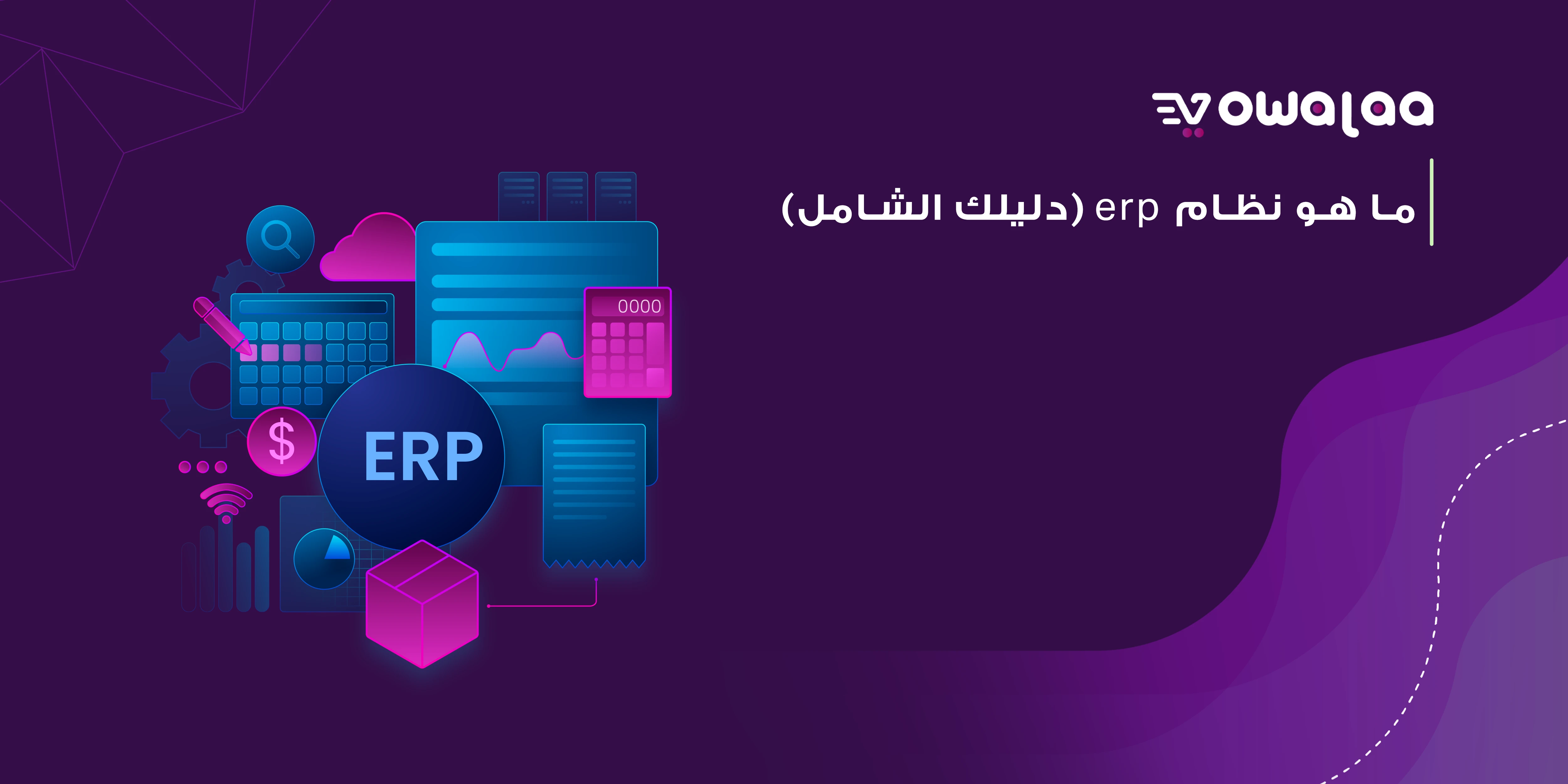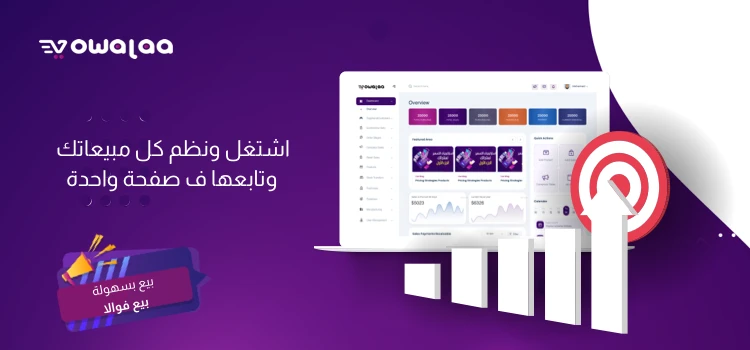
What is ERP System (Your Comprehensive Guide)
In today's business world, Enterprise Resource Planning (ERP) system is considered one of the key management tools that contribute to improving work efficiency and enhancing competitive performance. The best ERP system represents a qualitative leap in organizing operations and resource management, as it integrates various data and processes within the enterprise into a single comprehensive system.
Behind this term lies modern technology and economic developments, with the aim of unifying and simplifying business operations through providing a comprehensive platform that combines Human Resources Management, Financial Management, Supply Chain, Production, Sales, and Marketing.
What is an ERP system for enterprises? ERP (Enterprise Resource Planning) system is an integrated system aimed at organizing and managing all business operations within the company comprehensively and seamlessly. ERP is a complex system that includes several modules working together to cover all aspects of the company's operations, including planning, production, human resources, finance, supply chain, and customer relationships.
The concept of the best ERP system embodies the philosophy of unifying all processes and data into one system, which helps simplify operations, increase efficiency, and enables data sharing among different departments of the company, ensuring smooth and coordinated communication among all stakeholders. Additionally, ERP system provides comprehensive data and information analysis, enabling senior management to make strategic decisions based on strong foundations.
ERP system is an essential part of technological advancement in the field of business management, helping companies improve productivity, reduce costs, enhance service quality, and achieve competitive excellence in the market.
How to learn ERP system for companies? In the modern business world, learning ERP system is vital for the success and improvement of companies' performance. By understanding how to use this comprehensive system, employees can become more effective and efficient in performing their daily duties. The best ERP system enables users to track operations in an integrated and seamless manner, organize information in an organized way that makes management and planning easy and effective. To learn ERP system effectively, interested employees should first understand the basics, such as the system's structure and its various functions, and then benefit from available training courses to learn how to use the system practically and apply it. Through continuous practice and interaction with the system, employees can improve their skills and gain the necessary experience to confidently deal with daily work challenges.
How to analyze ERP system for enterprises? Analyzing ERP system is an essential step to ensure its successful implementation and full utilization of its benefits in the company. ERP system analysis involves a deep examination of the company's requirements and operational objectives, in addition to examining the current infrastructure and the current system's ability to meet the company's needs. Through detailed analysis, the company can determine whether it needs to improve the current system or adopt a new ERP system. Moreover, analysis provides an opportunity to identify potential challenges and concerns that may arise during the system implementation process, and develop plans to effectively address them. Furthermore, ERP system analysis can reveal potential opportunities to improve operations and increase efficiency in the company, helping to make appropriate strategic decisions and achieve success in the system implementation project.
Best ERP system for companies Finding the best ERP system can be challenging for companies, as there are many options available with different features, costs, and ease of use. However, some ERP systems stand out for their advanced technology and excellent performance, making them competitive in the market.
The ideal ERP system should fully meet the company's needs, be easy to use, customizable, and provide effective support. Some leading ERP systems include SAP ERP, Oracle ERP Cloud, Microsoft Dynamics 365, NetSuite ERP, and many others.
To determine the appropriate system, companies should conduct a comprehensive assessment of their needs and requirements, and compare the features and costs of different systems. It is also advisable to consider user and expert reviews, and consult specialized companies in ERP system implementation.
Therefore, the optimal choice for the best system depends on the company's needs, budget, operational objectives, and ensuring good integration and effective support to help the company achieve maximum benefit from the selected system.
Inventory management with ERP system Inventory management is a vital process in the business context, as it significantly affects work efficiency and profit achievement. Inventory management aims to achieve a perfect balance between meeting customer needs and reducing costs associated with storing goods.
Inventory management includes several important aspects, such as evaluating demand, determining required stock levels, identifying stored quantities and delivery schedules, quality control, and monitoring the flow of goods between suppliers and customers.
With the right ERP system in place, inventory management processes can be simplified and organized, and overall visibility of all inventory-related information can be improved, facilitating strategic decision-making based on accurate and up-to-date data. Additionally, an ERP system can help improve resource allocation and reduce unnecessary storage costs, thereby increasing efficiency and profitability.
In summary, inventory management is an essential part of production and marketing operations, and relying on an ERP system in this context is a necessary step to achieve organization and efficiency in resource management and business success.
In conclusion, Enterprise Resource Planning (ERP) system clearly emerges as one of the key tools for achieving success in today's business world, representing an important foundation in organizing operations and providing important strategic insights for making sound decisions. By unifying data and processes, ERP system contributes to improving work efficiency and increasing productivity, thereby enhancing the company's competitiveness in the market. ERP provides a comprehensive view of enterprise performance, enabling leaders to identify strengths and weaknesses and develop successful strategies to achieve goals. You can also refer to the "Fawla" blog, which offers a variety of tips and guidance for business owners and those interested in e-commerce, marketing, and sales.






